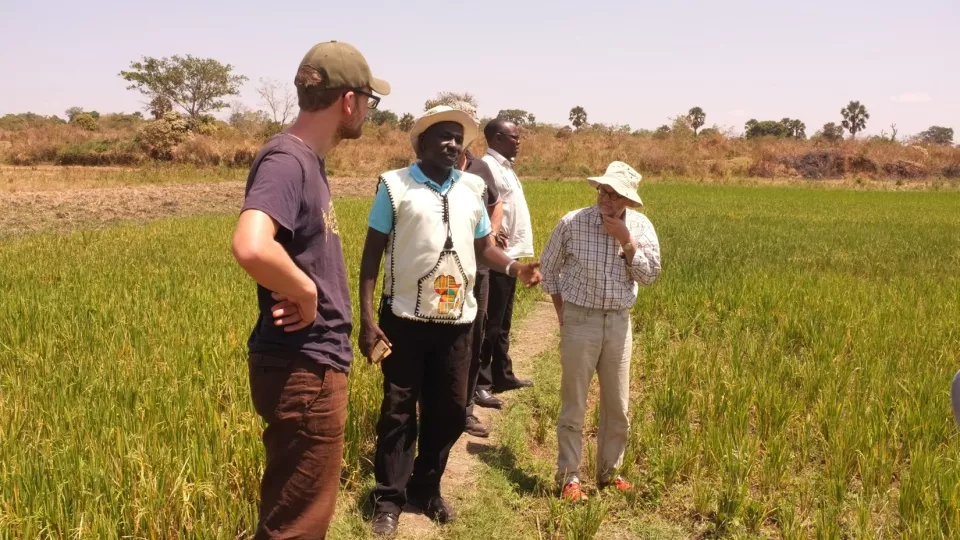What is the focus for your research?
Our project, which invoves LUCSUS researchers Elina Andersson and Lennart Olsson, investigates the potential of perennial agriculture to meet some of the combined challenges that smallholder farmers in sub-Saharan Africa are facing with increasing temperatures. Essentially we are testing two different perennial farming systems, focused on perennial sorghum (under development in the US) and pigeonpea, and perennial rice (developed in China).
In other studies these crops have shown a theoretical potential to reduce soil carbon loss and soil fertility decline, and are expected to be more drought tolerant because of their more extensive root systems. Our project analyses the potential of these crops from an interdisciplinary perspective, by examining not just how well they do in terms of yield, pest pressure, water demands etc, but also how well they fit in with existing smallholder farming practices, how much labour time they require, etc. Secondly, we also examine their potential to contribute to increased retention and production of soil carbon matter.
What methods do you use?
Our research is based on participatory farmer trials, complemented with interviews, focus groups, and soil analysis. At a later state we will also carry out a policy analysis to evaluate the potential to upscale perennial grain agriculture.
You recently went to Uganda on a fieldtrip, what did you do there?
We were in Uganda to organise a scientific workshop with the project partners and some external guests, and to get started with the farmer trials that we are organizing in different parts of the country. We held decentralized farmer workshops on project design and field management, and on the kind of trial data that we ask the participants to collect for us. We also distributed the germplasm, i.e. the perennial sorghum and pigeon pea, and took soil samples at a number of our study sites.
What are the next steps for the research project?
We will be returning to Uganda in September, to evaluate the outcomes of the first growing season. After that, we’ll be organizing the first detailed interviews with the farmers. The idea is for the crops to stay in the ground for at least 3 more years, so we will be evaluating them during this entire time.
Why do you research this specific area of sustainability?
Mostly, I suppose, because I feel I get a lot out of it myself. Working on this topic, and continue learning in my everyday work really inspires me. And of course it feels important to work on sustainability challenges in this day and age. I can’t imagine doing anything else.
I also hope our research can be a contribution to increasing sustainability and climate adaptation in future agriculture.
Finally, what is your advice for researchers going into the field?
Be well prepared, but be prepared to be surprised as well. There are many things that can happen during fieldwork, some of which can take the research project in new and interesting directions.
